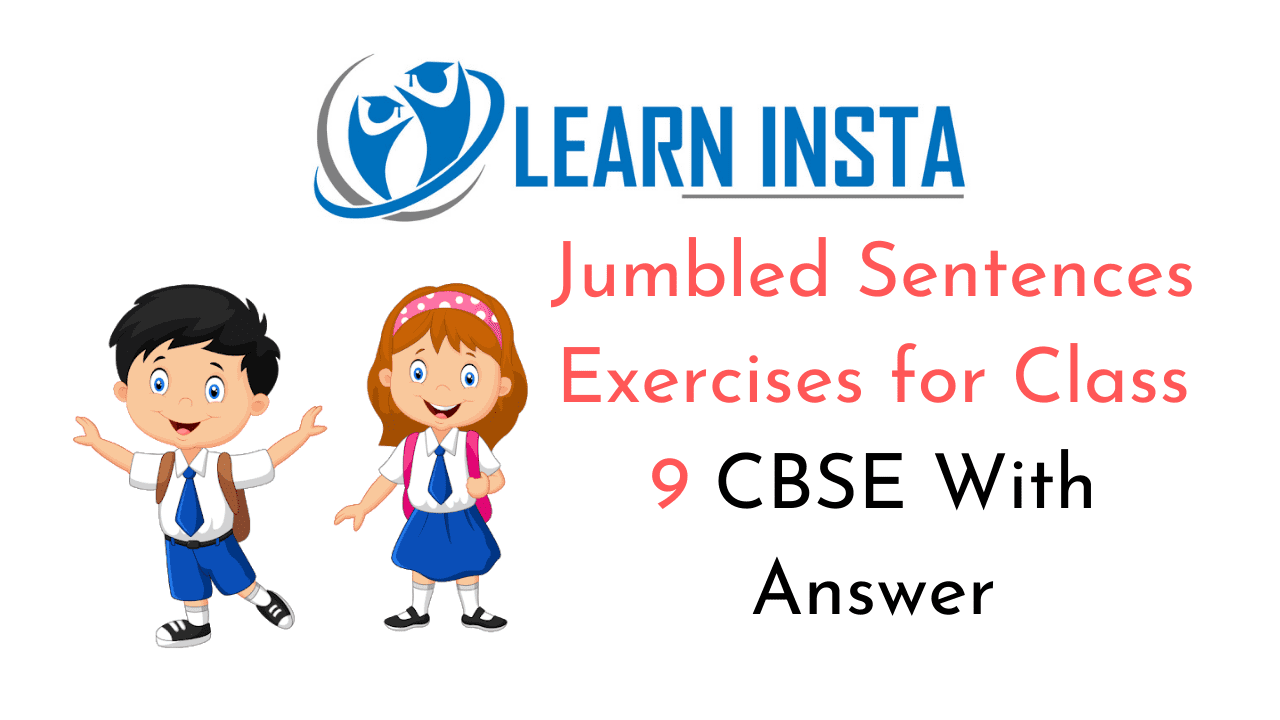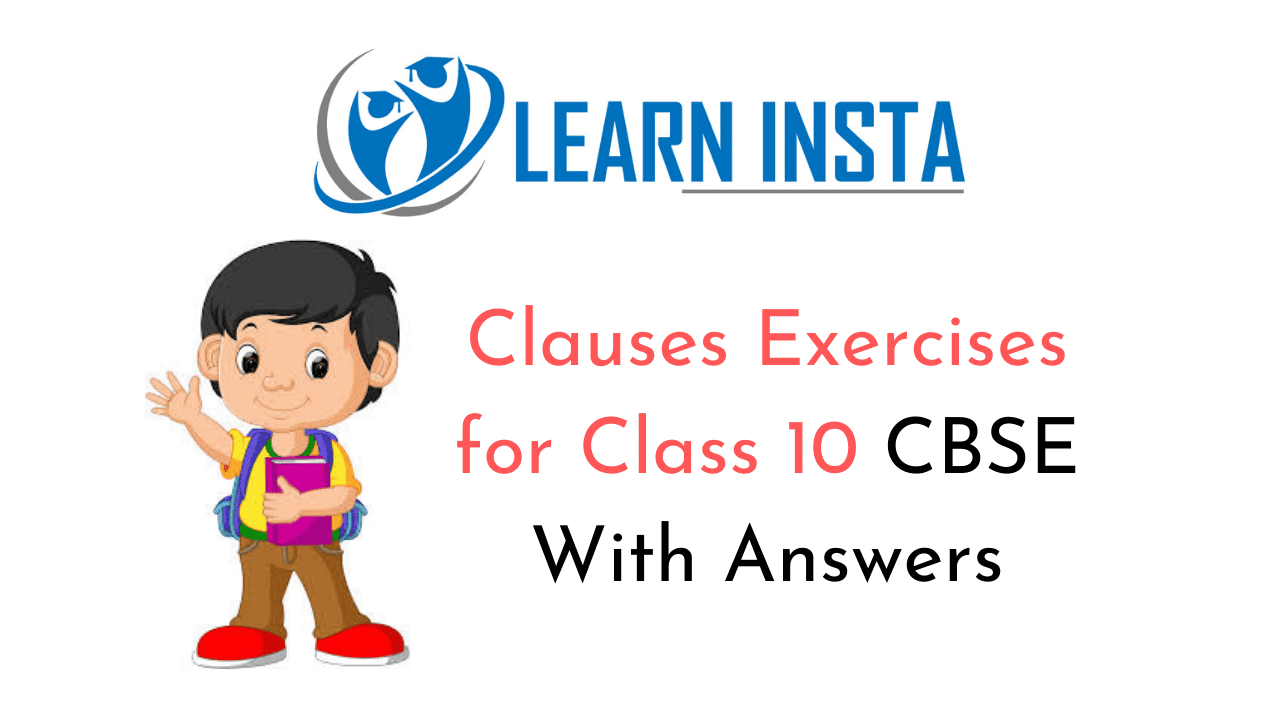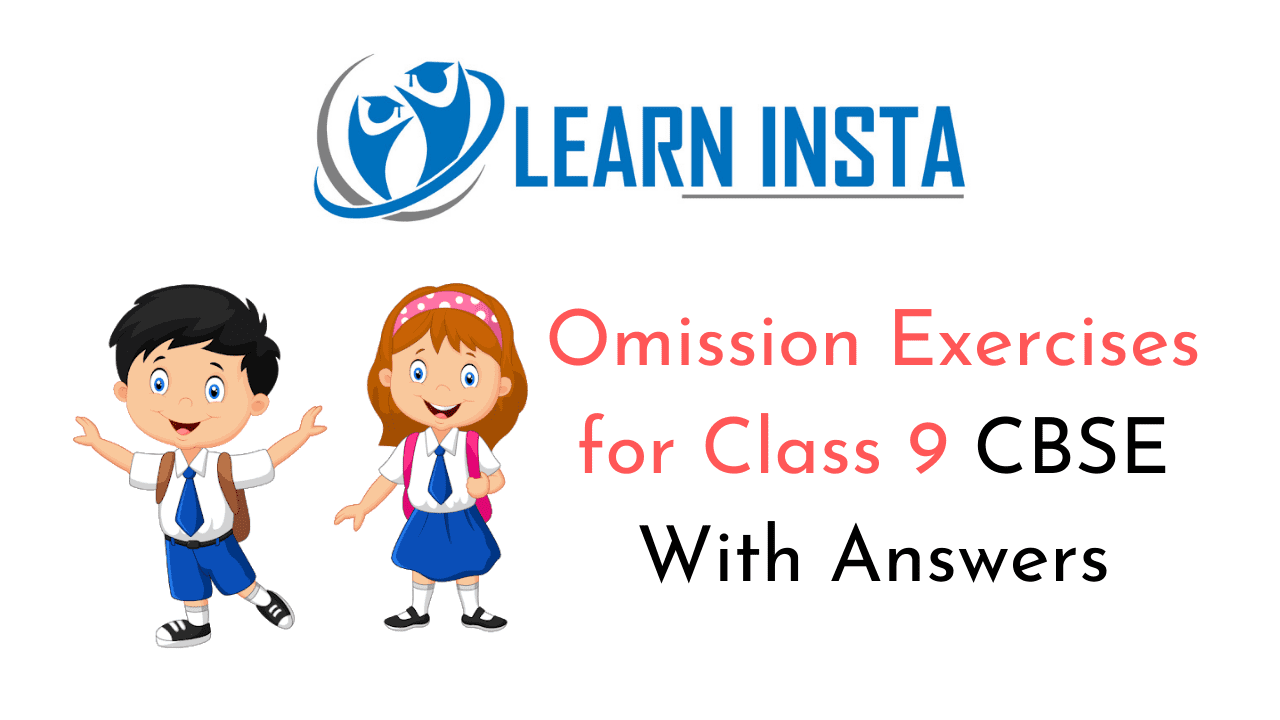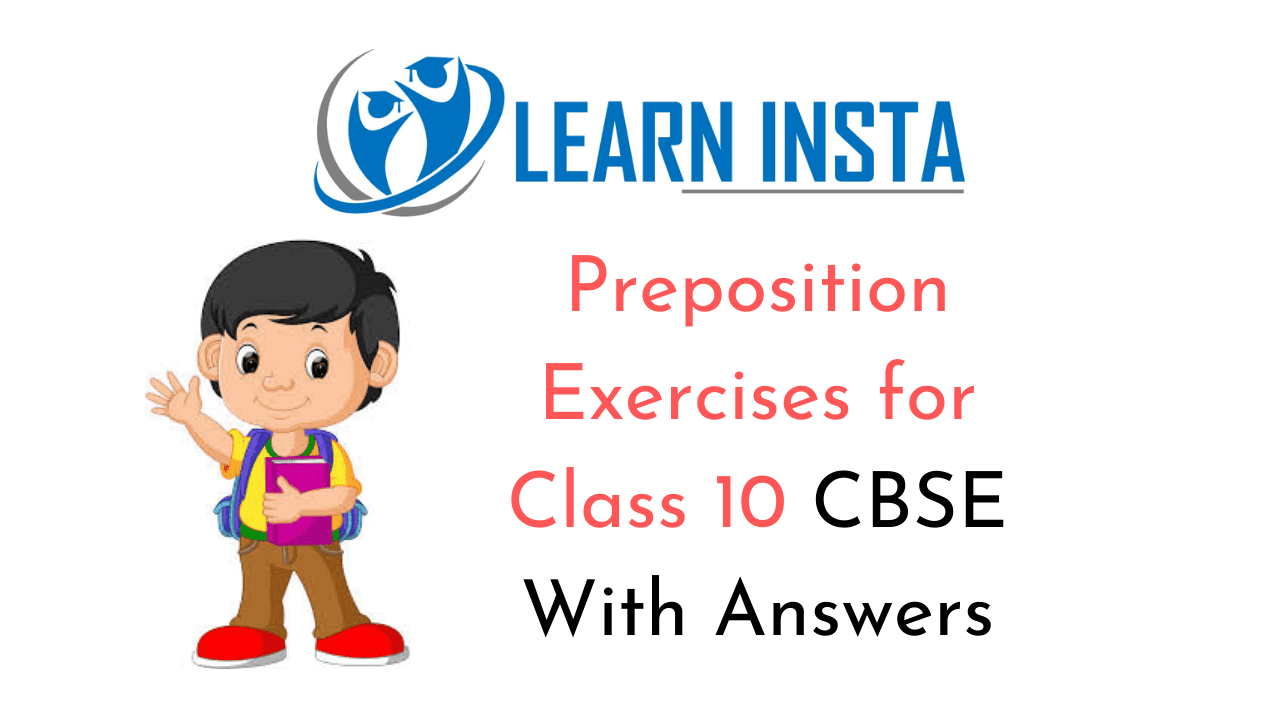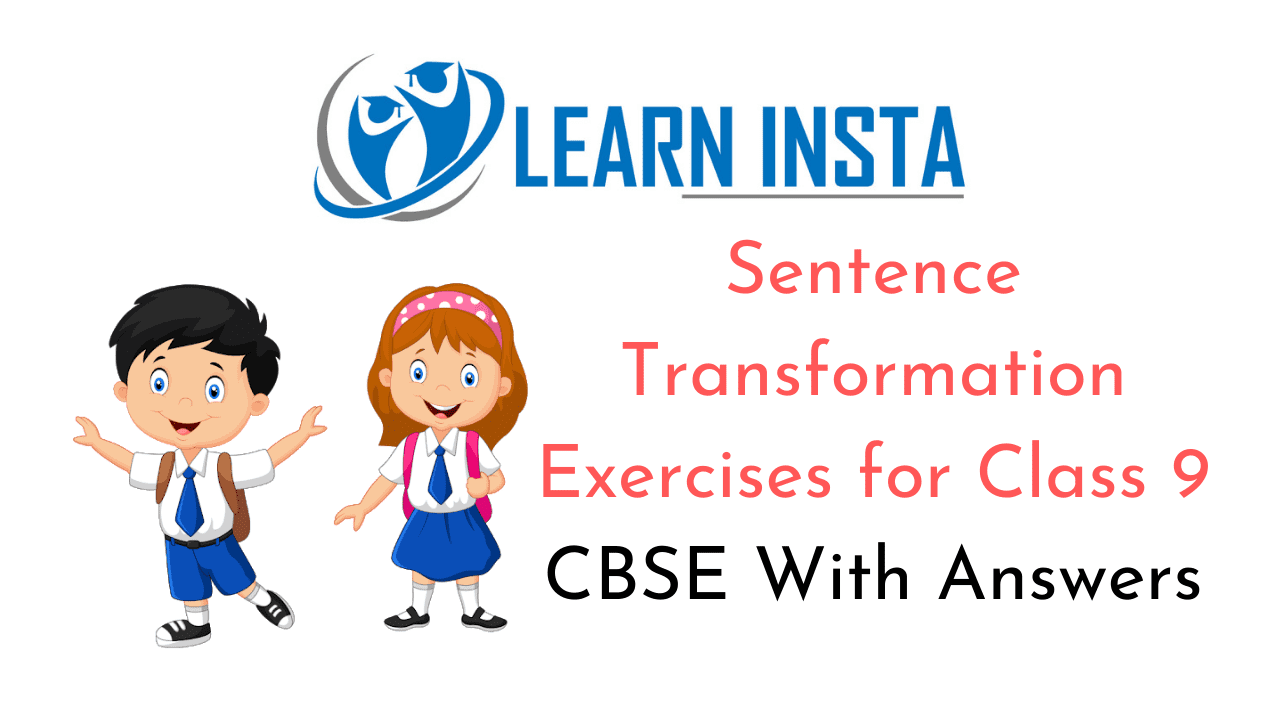
Transformation of sentences means to change the form of a sentence without changing its meaning. A simple sentence can be changed into a complex or a compound sentence and vice versa. Similarly, an interchange of affirmative, negative, and interrogative sentences can be done; without changing their meaning. Given below are some of the ways to transform a sentence.
This grammar section explains English Grammar in a clear and simple way. There are example sentences to show how the language is used. You can also visit the most accurate and elaborate NCERT Solutions for Class 9 English. Every question of the textbook has been answered here.
Sentence Transformation Exercises for Class 9 CBSE With Answers Pdf
1. Remove the adverb ‘Too’
We can change the form of a sentence containing the adverb ‘too’ by replacing it by so that like this: that + subject + can not.
Example:
- The news is too good to be true.
The news is so good that it cannot be true. - The bag was too heavy for me to carry.
The bag was so heavy that I could not carry it.
2. By changing the degree of comparison.
(a) Positive to comparative.
- He is as strong as his brother.
- His brother is not stronger than him.
(b) Comparative to positive.
- The airplane flies faster than birds.
- Birds do not fly as fast as airplanes.
(c) Positive to superlative
- No other building is as tall as this in Delhi.
This is the tallest building in Delhi. - Only a few girls in my class are as bright as Isha.
Isha is one of the brightest girls in my class.
(d) Superlative to positive.
- Ramesh is the best candidate so far.
So far, no other candidate is as good as Ramesh. - Australia is the largest island in the world.
No other island is as large as Australia in the world.
3. Use of a negative and an opposite word or double negatives.
- He is feeling active.
He is not feeling inactive. - I agree with you.
I do not disagree with you.
4. Interchange of Interrogative and Assertive.
- Who can believe his story?
Nobody can believe his story. - Were they ever punished?
They were never punished. - Is this the way to treat old people?
This is not the way to treat old people.
Note: Only those sentences where the interrogative form has been used for the sake of emphasis can be changed into assertive forms.
5. Interchange of Exclamatory and Assertive.
Use of ‘very’ in place of the words showing exclamation.
- What a marvelous piece of art!
It’s a marvelous piece of art. - How nice your words sound!
Your words sound very nice. - How nice you look!
You look very nice.
Note: Narration and change of voice also come under the transformation of sentences.
Sentence Transformation Exercises Solved Question for Class 9 CBSE
Question 1.
With the help of the hints given below, write out the recipe required to make shrikhand. Read the given recipe and then write out the instruction filling in the gaps choosing the correct option.
Tie 500 gm curd in a fine muslin cloth.
Hang for 5-6 hours till all the water sieves out. Add 2 tbsp milk.
Add 8-10 powdered green cardamoms. Add 500 gm sugar.
Top with cream and nuts. Serve in individual bowls.
To make shrikhand, 500 gm of curd (a) ………………………. fine muslin cloth and hung for 5-6 hours till all the water sieves out. Then 500 gm of sugar, two tablespoons milk and powder of 8-10 cardamoms (b) ………………………. well. Finally, the mixture is topped with cream and nuts and (c) ………………………. bowls.
Question 2.
(i) The matter is too urgent to be postponed. – (Remove the adverb ‘too’)
(ii) Who can beat him in the race? – (Change into ‘assertive’)
(iii) Prerna is an honest girl. – (Change into ‘negative’)
(iv) Suchitra is one of the most intelligent students in my class. – (Use ‘only few’)
(v) He is so weak that he can not lift the load. – (Change into ‘affirmative’)
(vi) What a beautiful store it is! – (Change into ‘assertive’)
(vii) Renu is as active as Kanchan. – (Change into ‘negative’)
(viii) Kashmir is one of the most beautiful hill stations of India. – (Change into ‘comparative’)
(ix) We eat to live. – (Change into ‘negative’)
(x) It was a spectacular show. – (Change into ‘exclamatory’)
Answer:
(i) The matter is so urgent that it cannot be postponed.
(ii) Nobody/ No one can beat him in the race.
(iii) Prerna is not a dishonest girl.
(iv) Only few students are as intelligent as Suchitra in my class.
(v) He is too weak to lift the load.
(vi) It is a very beautiful store.
(vii) Kanchan is not more active than Renu.
(viii) Kashmir is more beautiful than many of the hill stations of India.
(ix) We do not eat to die.
(x) What a spectacular show it was!
Question 3.
Fill in the blanks with ‘if or ‘unless’.
(a) I won’t be able to assist you ______________ you give me all the details of the report.
(b) I will take this job ______________ the working hours suit me.
(c) ______________ he advertises on TV, he will get a lot of publicity.
(d) ______________ it is very cold, we will not have any snow. .
(e) The thief threatened to kill us ______________ we didn’t give him themoney.
(f) ______________ you use high quality material, you cannot build a strong house.
Answer:
(a) unless
(b) if
(c) if
(d) unless
(e) if
(f) unless
Question 4.
Given below is the method for mending the puncture in a cycle tube. Do not copy the complete .sentence. Write your answers against the correct blank numbers in your notebooks.
- Remove tyre and tube.
- Inflate tube and dip it in water. Watch for air bubbles.
- Mark the spot and apply puncture-mending material.
- Wait for the material to dry.
- Check for leak by dipping inflated tube in water.
- Fix the tyre and tube.
To mend a puncture, first the tyre and tube is removed. The tube (a) ……………………… . The punctured spot (b) ………………………. by watching for air bubbles. Puncture-mending material is applied to this mark and allowed to dry. Once the punctured material is dry, the tube (c) ………………………. and then it is fixed.
Type 1.
Read the following dialogues and then change the narration from direct to indirect speech.
Question 1.
Prerna: Are you going for the picnic?
Ram: No, I can’t because my father is unwell.
Prerna: I will pray to God for his speedy recovery.
Prerna wanted to know from Ram (a) _____________. To this Ram answered that he could not go because (b) _____________. Further, Prerna said that (c) _____________.
Answer:
(a) if he was going for the picnic.
(b) his father was unwell.
(c) she would pray to God for his (father’s) speedy recovery.
Question 2.
Piyush: Have you seen the new movie?
Raman: No, I have not as I was busy preparing for the competitive exams.
Piyush: When will you be free?
Raman: Next week.
Piyush asked Raman (a) _____________ the new movie. Raman replied in the negative and told (b) _____________ Piyush further asked (c) _____________ be free. Raman answered that he would be free the following week.
Answer:
(a) if he had seen.
(b) that he was busy preparing for the competitive exams.
(c) when he would
Question 3.
Mother: Why are you looking so pale. Are you all alright?
Daughter: I have not eaten anything since morning as I lost my bag.
Mother: You should have told me this earlier.
The mother asked her daughter (a) _____________ and whether she was alright. The daughter replied that (b) _____________ as she had lost bag. The mother told her (c) _____________.
Answer:
(a) why she was looking so pale.
(b) she had not eaten anything since morning as
(c) that she should have told her that earlier.
Type 2
Rewrite the following short paragraphs changing the voice from active to passive and from passive to active.
Question 1.
My brother bought a box of chocolates for me last month. I distributed chocolates to all my friends.
Answer:
A box of chocolates was bought by my brother last month. The chocolates were distributed among all my friends by me.
Question 2.
The language test was taken by Arts students. The papers were distributed by the examiners.
Answer:
Arts students took the language test. The examiners distributed the papers.
Question 3.
We should treat each person with respect. The teacher said this to all students of the class.
Answer:
Each person should be treated with respect from us. This was said by the teacher to all students of the class.
Question 4.
A large life-size painting was gifted to Mrinal by his friend. He was given this on» account of his birthday by him.
Answer:
Mrinal’s friend gifted him a large life-size painting. He gave him this on account of his birthday.
Type 3
Do As Directed
Question 1.
This, box is too heavy to lift. (Use so… that)
Answer:
This box is so heavy that it cannot be lifted.
Question 2.
He left early. He missed the train. (Use ‘although’)
Answer:
Although he left early, he missed the train.
Question 3.
Imran is one of the tallest boys in the class. (Use ‘comparative degree’)
Answer:
Imran is taller than most other boys in the class.
Question 4.
He saw a thief. He informed the police at once. (Combine using ‘as soon as…’)
Answer:
As soon as he saw a thief, he informed the police.
Question 5.
He could not take his exams. He had fallen sick. (Combine using ‘because’)
Answer:
He could not take his exams because he had fallen sick.
Question 6.
Ravi is as intelligent as Sohan. (Use comparative degree)
Answer:
Sohan is not more intelligent than Ravi.
Question 7.
She is very sick. She cannot walk. (Combine using ‘too… to’)
Answer:
She is too sick to walk.
Question 8.
This place is very comfortable. (Change into ‘negative’)
Answer:
This place is not uncomfortable.
Question 9.
He works hard. He wants to get a scholarship. (Combine using ‘so’)
Answer:
He wants to get a scholarship so he works hard.
Question 10.
My mother told me (Complete With a ‘noun clause’)
Answer:
My mother told me that she loves me a lot.
Question 11.
He is the man (Complete with a relative clause)
Answer:
He is the man who stole my bicycle.
Question 12.
She speaks (Complete with an adverb clause)
Answer:
She speaks as if she owns the place.
Question 13.
He. did not go to the award function. He was not invited. (Combine using ‘As’)
Answer:
He did not go to the award function as he was not invited.
Question 14.
They did not disagree with each other. (Change into ‘positive’)
Answer:
They agreed with each other.
Question 15.
Shivani is fatter that all the girls in her class. (Change into ‘superlative’)
Answer:
Shivani is the fattest girl in her class.
Question 16.
The tailor is stitching a dress. (Begin with, ‘A dress’)
Answer:
A dress is being stitched by the tailor.
Question 17.
She cannot speak. She cannot hear. (Combine using ‘neither… nor’)
Answer:
She can neither speak nor hear.
Question 18.
They lost their luggage. They also missed their train. (Combine using ‘not only… but also’)
Answer:
They not only lost their luggage but also missed their train.
Question 19.
He is a hard-working boy. He gets good marks. (Combine using ‘because’)
Answer:
He gets good marks because he is a hard-working boy.
Question 20.
My elder brother plays tennis. He also plays football. (Combine using ‘both…and’)
Answer:
My elder brother plays both tennis and football.
